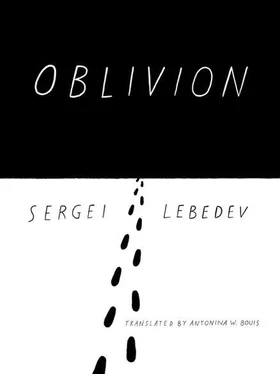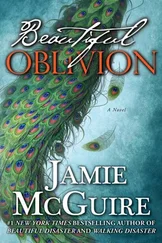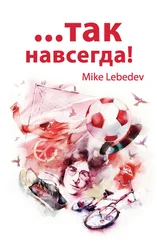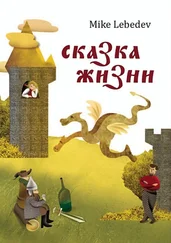I had a clear sense of my young age, the childhood of my body—not consciousness, my body—how weak and pitiful it was; the old men stood above me like priests above a prepared sacrifice, and I felt threatened just by our relative positions, increased by the rough hand that caressed me, practically scratching me.
I recalled a taut apple, unripe, that I had cracked open that day, and I saw myself as a soft seed, not yet turning brown; the old men stood over an open bed, showing white in the dark, and the moment was broken like the apple, to its very core.
I recalled Grandfather II grafting apple trees, we had many of them in the garden with knobby grafting scars ringing the bottoms of their trunks; of all the knives of my childhood there was only one I didn’t dream of owning—Grandfather II’s crooked garden knife, hooked, scary, scarier than a scalpel, ugly, like the beak of a bird of prey. You couldn’t peel with it, or cut up a potato, or play knives—you could only slice layers, cut apart tree fibers, leaving a shiny smooth cut. All those things—the white apple, the grafts cut at an angle, the apple trees with twisted trunks if the graft grew together badly, Grandfather II’s knife—they combined into a panicked sensation that the two old men were there to do something to me.
That they were just standing and talking was even more eerie, their speech sounded like a spell spoken over a sleeper whose mind was softened and defenseless; the hand kept stroking my forehead, and I felt an invisible mark, a seal, being left by that touch; the old men spoke of their childlessness, Grandfather II said two names and I understood that he had had a wife and a son who died in early childhood; I also understood that now, blind, he was imagining that he was at the bedside of his child and showing him to the other old man.
In that replacement, that substitution, the sign his hand was putting on my forehead was created; it is wrong to put a living person in place of a dead one, even in thought—it puts in place unnatural ties and casts a shadow into the future of the imagined predestination, which will never come to pass, but will tie knots the person will have to untie with his own life.
I must have blocked this memory; I honestly did not remember the second old man; he must have been passing through Moscow and come to visit Grandfather II at the dacha. In the morning when I got up, he was gone, the night was gone, Grandfather II’s words about his dead son—the event moved into the distance, as if it had occurred years ago, and soon after vanished completely; dream or reality, the vision was too much for me to handle then, which is why it was hidden by my consciousness and returned in childhood as a vague, tormenting echo in my dreams, where I sensed that my place in life was taken by someone else, a cuckoo in the nest, a monstrous infant who grew along with me but remained an infant. I shuddered when I heard “Who’s been eating my porridge? Who’s been sleeping in my bed?” I knew who; a blurred white face, as if in a beaker with formaldehyde, looked at me from my dreams, the key to which I had lost, and no one else in our family had ever heard of Grandfather II’s wife and son.
And now standing in the room to which I was led by postcards in Grandfather II’s papers, I sensed that one of the most significant events of my life had taken place: that which tells us about ourselves exists in fragments, scattered in time and space, and most often we do not know the most important thing about ourselves, though it already exists; I remembered the second guiding dream with the train engineer and his arrested brother, missing each other forever by the prison train, brought together so as not to meet; I sensed that my life was being refracted in the present moment like a beam in a magnifying glass, refracted and reset by this lens of understanding; I learned what I had come for, and that knowledge, it turns out, had always been with me, in my memory.
Essentially, it was the end of the journey, I could leave the room and go home; but I remembered that the door was locked, too firmly locked. Naturally, I could have asked to open it, moreover, that’s what I wanted to do; I was eager to get out, eager to think about what had happened; but the door wasn’t being opened yet. Gradually I realized there was something else I was to learn and understand, and my being resisted this imminent discovery. But leaving meant leaving, acting arbitrarily.
The right thing was not to leave before the hosts opened the door for me; the right thing was to take from this meeting not only what I wanted to learn but what my mind rejected in foreboding, which promised not a return home but another, new journey.
The old man rose from the armchair toward me; I jumped back. Before me stood an aged child, physically; the concept of thinness no longer applied—he was not just thin, he was desiccated, as if he had been drained and pinned like an insect and kept for years under glass on a velvet cloth. His muscles had melted leaving only sinew, the skin was as transparent as fine parchment, and the inner life of the body was revealed; blue blood vessels, with a pigeon-wing iridescence, were woven into a map of the blood flow and here and there dark areas like squashed blueberries showed subcutaneous bruising. The old man was half dressed, his body no longer could sweat and exude the death that was crawling beneath his skin; he no longer had a face in the human sense, the flesh had melted like butter from a growing fever, and the twitching pupils looked out straight from the skull. The cartilage on his ears had wilted like smoked mollusks, his eyelashes and eyebrows had fallen out, and only a weak childlike fluff, as if it had been scorched, covered his brows; the swollen capillaries on his cheeks had blended together into fine hieroglyphics written in crimson ink; the old man was dying of radiation disease, he had been exposed to a low level dose which was acting on his body only now; the body was no longer capable of hematosis, the blood in his veins was not renewed, and he was slowly being poisoned by the life he was living—and had lived—poisoned by the past, its slag and toxins accumulating in tissue. He was being killed by time; standing before him, I was the embodiment of that new time; he hated me, that was clear from his clenched teeth, he had forgotten that his withered lips did not cover them anymore; his dentures were smooth and white, and I remembered Grandfather II’s false teeth.
I handed him his own letter; he read it, nodded to show he understood who I was, and began to speak. He said he knew how Grandfather II had died, he knew that I had received a blood transfusion from him—Grandfather II had told his housekeeper whom to inform if something happened to him and ordered her not to tell my family about it.
The old man waited to find out why I was there, and I asked if he had any papers, maybe photographs; I didn’t want to ask him about Grandfather II, the head of the prison camp, didn’t want to ask about their relationship, it was all clear anyway.
The old man told me to take the album from the closet and remove the greeting card from the first page; there was a photograph behind it.
Age had removed most of the black and white from the photo, it was faded; it felt as if the photographer had been taking a picture of a memory.
There were people in the photo, they were gathered for an opening ceremony for something, among them I recognized Grandfather II; there was only one spot that stood out—a spot of blackness in the place where the shovel in Grandfather II’s hands had dug out a clump of dirt. The hole was dark, it attracted the eye like a beauty mark on a cheek. I understood that the quarry I had seen the day before had come out of that hole.
The photograph tried to convey the joy of the actions, spectral banners blended with the clouds, officers of the camp guards and engineers squeezed together to get into the shot; a poorly dressed band played horns and there was a sense that not the clothes but the musicians were made out of quilted cotton fabric charred by bonfires in winter, and then patched up, not people but puppets; the band played, the flags fluttered, but it was all done—the quarry was begun and the future was predestined; the future of the town, of all these people, and my future.
Читать дальше












